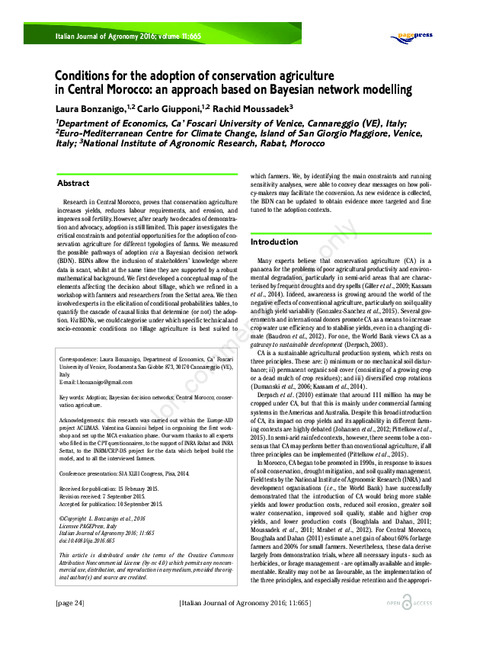Conditions for the adoption of conservation agriculture in Central Morocco: an approach based on Bayesian network modelling
Abstract
Research in Central Morocco, proves that conservation agriculture increases yields, reduces labour requirements, and erosion, and improves soil fertility. However, after nearly two decades of demonstration and advocacy, adoption is still limited. This paper investigates the critical constraints and potential opportunities for the adoption of conservation agriculture for different typologies of farms. We measured the possible pathways of adoption via a Bayesian decision network (BDN). BDNs allow the inclusion of stakeholders’ knowledge where data is scant, whilst at the same time they are supported by a robust mathematical background. We first developed a conceptual map of the elements affecting the decision about tillage, which we refined in a workshop with farmers and researchers from the Settat area. We then involved experts in the elicitation of conditional probabilities tables, to quantify the cascade of causal links that determine (or not) the adoption. Via BDNs, we could categorise under which specific technical and socio-economic conditions no tillage agriculture is best suited to which farmers. We, by identifying the main constraints and running sensitivity analyses, were able to convey clear messages on how policy-makers may facilitate the conversion. As new evidence is collected, the BDN can be updated to obtain evidence more targeted and fine tuned to the adoption contexts

